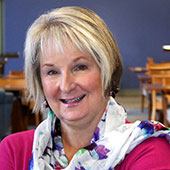Libraries don’t like to close. We pride ourselves on being there for our communities during times of crisis. We know we are often seen as safe havens. At the HS/HSL, we know our physical space is beloved by our community; however, in this time of COVID-19, we know we have a critical role to play in slowing the spread of the disease by helping to “flatten the curve.” Two of the most effective ways to slow down the spread of the disease are “social distancing” and disinfecting – personally and in the workspace. We could not guarantee or enforce the required social distancing, nor could we ensure the proper cleanliness or disinfecting of our public spaces, our study rooms, restrooms, or public computers. Our excellent team here at the HS/HSL deserves to be protected as well, as do their families and communities where they live. Contrary to popular opinion, our library family does not live at the Library. Therefore, we have worked diligently to make sure our resources and the majority of our services are available virtually. Please visit our website and click on the COVID-19 banner to see the wide variety of services and resources we have available. Test us. Make sure we are providing the support we promise. And give us feedback – positive AND constructive.
We look forward to welcoming you back to the building when this is all over. Stay healthy.








